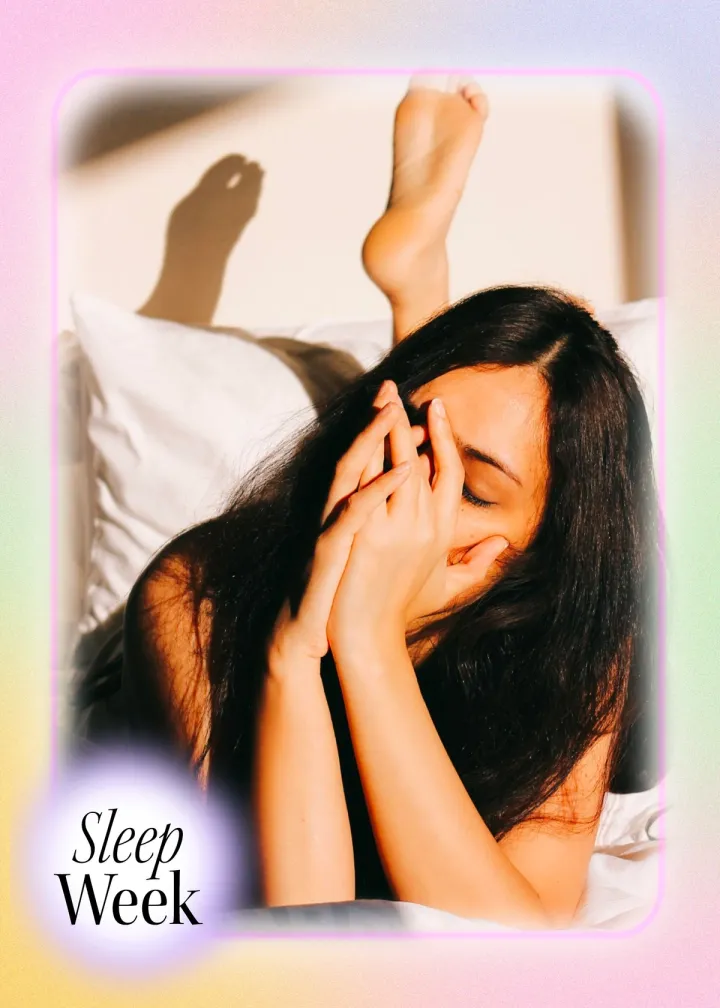
The Top 5 Reasons You Might Be Constantly Waking up Exhausted, According to a Doctor
General practitioner Sam Saling shares the most common reasons for always feeling tired.
Exhausted? Me too. It’s been a long few years. Life is busy and life can be tiring. But have you been feeling it more lately? In my day to day in my job as a general practitioner, fatigue is one of the most common reasons people come to seek my help. The pandemic years have given us a thirst for control over our health, especially the everyday things that irk us.
People are sick and tired of feeling tired, and this is where I come in. We all deserve to be well-rested, feeling energised, and performing at our best. So here are the top five reasons I find patients wake up feeling exhausted.
1. Burnout and stress
The number one thing I see causing fatigue is burnout. I’ve written about this before (read: The 2020 Burnout is Real: Here's Why You Feel So Fatigued Right Now), but even since then, the continued rise in burnout recognition is astounding. I am so pleased it is something that has entered our everyday vernacular, as it is so prevalent in a variety of industries. Burnout can lead to a feeling of overwhelming exhaustion and depersonalisation. Starting with putting a name to this feeling, and working through it, step by step. Leaving the fog that surrounds you with burnout is possible, but it takes time, effort, and the courage to change. Stress management comes in here too, as prolonged periods of high stress is a big reason for burnout to develop.
2. Alcohol
Having a few too many drinks is another reason that can exacerbate fatigue despite a good night’s sleep. Why? Well, alcohol consumption generally means more fluids in, which need to come out - causing frequent trips to the bathroom during what would be your otherwise peaceful rest time. It also dehydrates you, which is why waking up with a headache, dry mouth, and fatigue are common complaints after having a few too many.
3. Iron deficiency
With the rise in vegetarian and vegan diets, I have also seen a rise in the number of women presenting with symptoms of iron deficiency. Fatigue is the most common complaint associated with low iron, but did you know it can interrupt your sleep too? A lesser known presentation is lower leg cramps especially at night – which therefore interrupt sleep, not only from pain but due to restless leg movements associated. Understandably from all that thrashing around at night, you’ll feel exhausted.
Read: How to Avoid Fatigue on a Plant-Based Diet
4. Mental health
Sometimes, insomnia is the main indicator of a developing mental health condition like a mood or anxiety disorder. Insomnia includes difficulty falling asleep at the beginning of your sleep period, therefore reducing your hours of rest, and causing fatigue in the morning. Insomnia sometimes presents as being able to fall asleep at bedtime, then waking up in the early hours, unable to fall back asleep. These are clear reasons you may feel fatigued despite a decent sleep. Please speak to your GP or mental health professional if you feel your mental health is affecting your sleep, or call Lifeline for urgent support.
5. Obstructive sleep apnoea
Lastly, the most underrated diagnosis. Obstructive sleep apnoea - whereby one’s airway becomes blocked partially or fully during sleep for a few seconds at a time. This usually happens due to anatomical variants in the nose or throat that affect the passage of airway when it is most floppy – overnight! Sleep apnoea causes a drop in oxygen levels, up to dozens of times a minute, which is stressful for the brain and body long term. Unsurprisingly, one of the key indicators of sleep apnoea is feeling exhausted after a supposed full night’s sleep, as well as feeling tired in the daytime, especially during activities that would otherwise keep you alert, like driving. Morning headaches and a dry mouth are other lesser-known symptoms of sleep apnoea. Women (and men) are grossly underdiagnosed, so see your GP if you have any of these symptoms.
For more from Sam follow her at @drsamsaling and drsamsaling.com
This article is intended for informational purposes only and is not a substitute for individualised health advice. If you are concerned about your health and well-being, please speak to your GP, who will advise on the correct treatment plan. You can also call Lifeline 24/7 for mental health support on 13 11 14.
Enjoyed This?
Discover more sleep-related articles.










